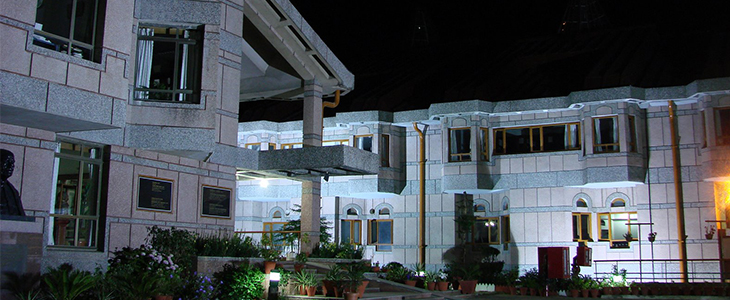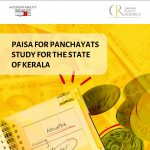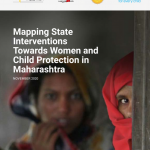
Imbibing Leadership skills through Institutional Reforms and personal habits
17 August 2015
The coming years calls for adopting the new age strategies of bridging leadership and adaptive leadership if civil servants are to make a difference. Training alone cannot make a difference in leadership styles and effectiveness. A combination of training, institutional reforms and adopting some simple personal habits might accelerate this transition in leadership.
In the overarching analysis, the IAS needs to be exposed to competition. It is undeniable that once a civil servant clears the entrance examination, whatever might be the discomfort of the job, the IAS tag itself offers a comfort zone to successful entrants. One cannot expect civil servants to retain their sharpness if all they need to do is to pass one exam and then sail along, largely protected from competition. Besides, over the years, the IAS has been nimble in identifying where the opportunities lie and have moved themselves to the right jobs that emerge through changing times, by changing their internal policies on placement.
In the licence and public monopoly raj period, the IAS occupied most Public Sector Undertaking postings, particularly in State governments. As many old style PSUs were disbanded and liquidated in the post liberalisation period, the IAS abandoned these and began to occupy the Special Purpose Vehicles created for channelising money downwards. For example, new age institutions such as Infrastructure Development Corporations, Health Missions, Education Missions, became preferred positions for IAS officers to be posted. Similarly, the proliferation of regulatory jobs have offered ample opportunities for post-retirement employment too, to IAS officers. Again it was the self-serving attitude of the service that queered the pitch. The 5th Pay Commission recommended increasing the retirement age to 60 with one caveat; that nobody should hold any government post after retirement and that the break with employment must be complete. The higher bureaucracy engineered the acceptance of the recommendation and ignored the caveat!
The way out is to throw open the bureaucracy to lateral entry. This has already been suggested by the Administrative Reforms Commission and in some sense by the 6th Pay Commission. The same is true of the police, the income tax, the audits and accounts service and indeed, of all permanently recruited bureaucrats. The recommendations in these reports ought to be implemented. I say this without much hope that they will be; all such reforms recommendations are again examined by Committees of Secretaries of the government and they are not going to shoot themselves in the foot, by accepting recommendations that go against their interests as a tribe.
We also need to take specific and conscious measures that reduce the ego needs of the bureaucracy. There are many personal habits and personality traits that reinforce the ego, which officers should eschew as individuals. Many of these are either mentioned or hinted at in the conduct rules, but are ignored in practice. Here are some that I think are important.
The IAS must learn to give credit where it rests. IAS officers must learn to publicly acknowledge the actual individuals responsible for outstanding development. I have seen many IAS officers receiving awards on behalf of their districts or institutions. Rarely have I seen anybody thank their team, or mention the names of those who actually did the hard work. I found it laughable that when NREGA performance awards were given away in Delhi, it was the Collector who is called for the presentation, not the District Panchayat Chairperson, though under the NREGA, it is the District Panchayat that is to approve the Shelf of Projects and the District Programme Coordinators are to assist them. I once saw a brochure on the NREGA published by the district administration, in which the Collector has put his own photograph and taken credit for a programme that is largely implemented by the Panchayats. Such practices of seeking vicarious credit should be discouraged, even ridiculed. Please note that in no NREGA scam unearthed through social audit, has one seen any District Collectors taking vicarious responsibility and offering to go to jail. If IAS officers need to become bridging leaders, they should consciously avoid giving the impression that they are individuals who are destined for a higher order. They will need to give us symbols of separation and power. They could take several steps in their official and personal lives that might look silly, but are deeply symbolic in India’s hierarchical societies. These little things go a long way in changing the equation of leadership. Symbolism is important and one needs to ring in a new era by changing the symbolic grammar of daily interaction.
First, they could avoid discriminatory practices. For example, why have separate officers’ toilets, or separate elevators? Why not instead, ensure that all toilets in the office are clean? For a start, they could have common toilets for everybody in North Block in New Delhi, occupied by the most exalted of India’s mandarins. Similarly, IAS officers must learn not to break queues; even if somebody offers them a place ahead, they need to learn to decline and follow the rules like anybody else.
Second, the IAS could avoid using symbols of rank. The IAS is not an uniformed service. There is no need therefore, for symbols of rank to be adopted. For instance, the IAS officers of a State that prides itself on its egalitarian culture has actually managed to design an IAS flag, which flies ceremonially from the flagpost of their cars when they are chauffeured! Apparently that was because they were peeved with similar habits of their police counterparts. Such ridiculous ego trips should be abolished immediately.
Third, the IAS could adopt habits that do not require a retinue of hangers on. For example, they could carry their own bags when coming to office. They need not have an army of attendants to see them off or receive them at airports. They could drive their own vehicles on off days. They need not keep orderlies informally at home.
It will be too much to ask for I suppose, that the IAS should avoid putting the ‘IAS’ tag after their names, or on visiting cards. I know how inconvenient that is; that tag opens a lot of doors and is very useful to flash about on occasions.
Perhaps one will succeed with the suggestion that IAS officers should encourage people to address them by their names, or designations, and eschew the use of ‘Sir’ and ‘madam’.
No, I don’t think that will happen either.





